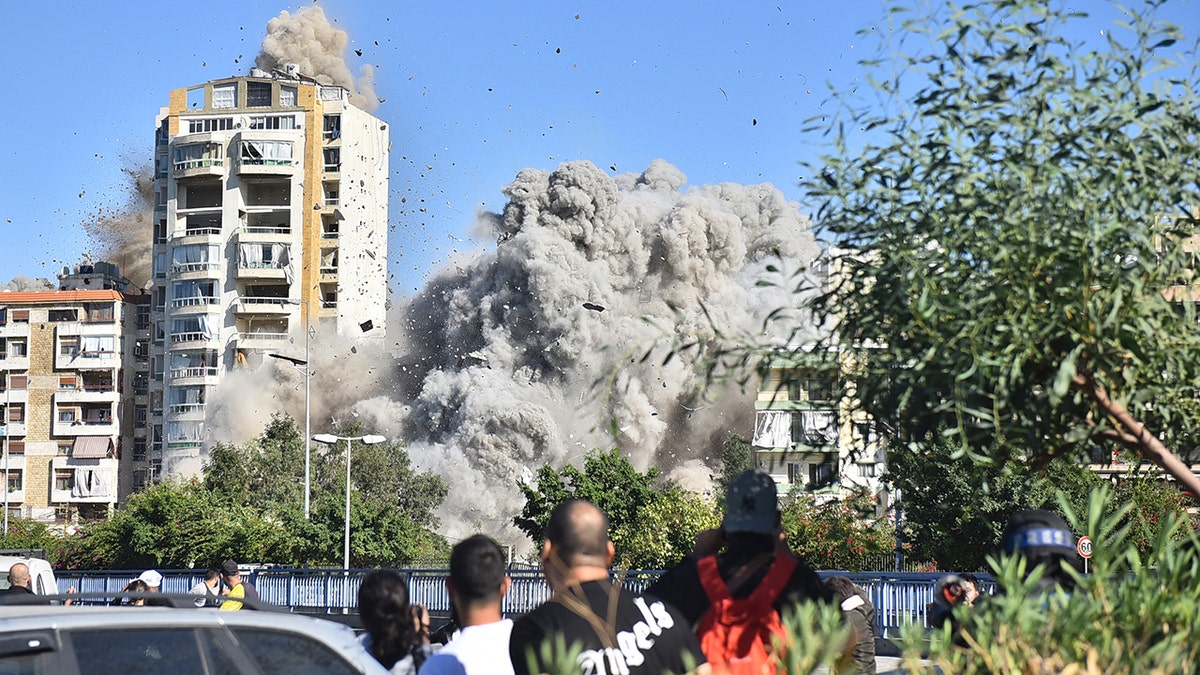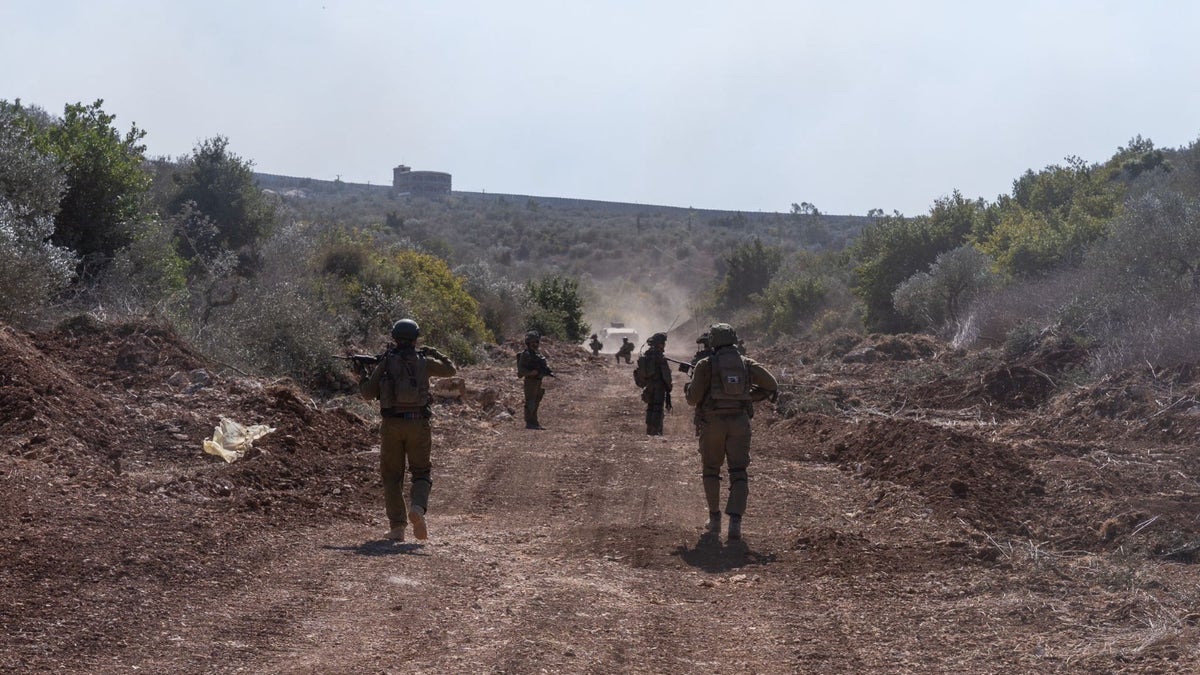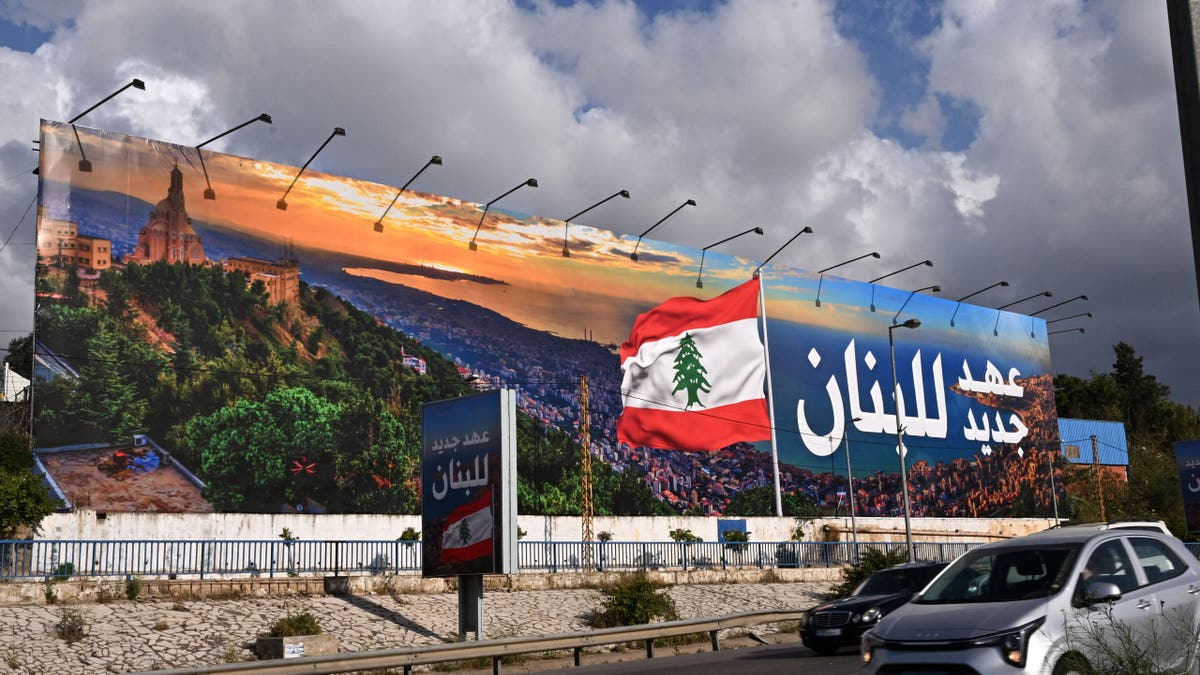Since Israel’s near annihilation of Hezbollah’s terror leadership, and the backing of the Trump administration, whose special envoy to Lebanon has made clear the U.S. goal of limiting the power and influence of the Iran-terror proxy, the winds of change are slowly blowing over Beirut.
“Thanks to Hezbollah being weakened and defeated after the war with Israel, we are finally in a position to have this conversation about peace with Israel,” Rami Naim, Lebanon affairs journalist and analyst for Jusoor News, told Fox News Digital. “In the past the intelligence investigated me and took me to jail because I said we want peace with Israel, but now I say it openly, yes, we want normalization, and yes, we want peace with Israel without fear.” Naim was personally attacked by Hezbollah last year for his outspoken views.
The weakening of Hezbollah, Iran’s proxy, and the election of Joseph Aoun as Lebanon’s president in January 2025, represents a turning point in the country’s political trajectory. After more than two years of political deadlock, Aoun’s election was seen as a victory for the anti-Hezbollah camp, and has seemingly made the shift in public opinion regarding peace with Israel more palatable.
An IDF information chart showing how it decimated the Hezbollah chain of command in recent strikes. (IDF Spokesman’s Unit)
Touting the U.S. president, Naim said, “We believe Trump will put things back on track and work toward peace, aiming for a major peace deal between Lebanon and Israel, which will require increased pressure on Iran.”
Interviews conducted by Jussor, a pan-Arab media outlet, have highlighted that many Lebanese citizens are now willing to consider normalization with Israel. One Lebanese man, interviewed on camera with his face showing, shared his hope: “I believe a day will come when there will be normalization with Israel. It will take time, but it will happen eventually.”
Another interviewee echoed similar sentiments: “Israel wants peace. They don’t want war. They are cleaning things up so war doesn’t happen, and we want peace too. We’re exhausted.”

Lebanese President Joseph Aoun meets with Morgan Ortagus, U.S. deputy special envoy for Middle East Peace, in Beirut on Feb. 7, 2025. (Lebanese Presidency/Handout/Anadolu via Getty Images)
Morgan Ortagus, U.S. deputy special envoy for Middle East Peace, has emphasized the necessity of disarming Hezbollah to stabilize Lebanon and pave the way for peace in the region.
In an interview with Al Arabiya earlier this month, she described Hezbollah as a “cancer” within Lebanon that must be removed for the country to have any hope of recovery. She said, “When you have cancer, you don’t treat part of the cancer in your body and let the rest of it grow and fester; you cut the cancer out.” Ortagus also criticized Iran for fueling regional instability and dragging Lebanon into conflicts it did not seek. She noted, “The government of Lebanon didn’t want to go to war with Israel. It was on Oct. 8, 2023, that Hezbollah and Iran decided to get into the war… people were forced into a war that nobody wanted to be in.”

Smoke rises after an Israeli airstrike targeting a Hezbollah stronghold in a southern suburb of Beirut on Oct. 22. (Fadel Itani/AFP via Getty Images)
“We are grateful to our ally Israel for defeating Hezbollah,” Ortagus said at a news conference in Beirut’s southeastern suburb of Baabda after a meeting with Lebanese President Joseph Aoun, the Associated Press reported.
Naim said that while the public may be ready for peace, it is the Lebanese political elite that must take action. “We need America to keep pressure on Lebanon’s corrupt politicians, who have enabled Hezbollah to rebuild its military capabilities… These politicians must publicly endorse peace. It’s not just activists and journalists who should be saying it. The decision-makers must step forward.”
ISRAEL DEGRADES IRAN-BACKED HEZBOLLAH TERRORISTS IN SPECTACULAR PAGER EXPLOSION OPERATION: EXPERTS

The IDF says its “soldiers are continuing to conduct limited, localized, targeted raids in southern Lebanon, eliminating Hezbollah terrorists and dismantling terror infrastructure and weapons stockpiles both above and below ground.” (IDF Spokesman’s Unit)
Naim’s call for international intervention underscores the continued importance of U.S. influence in Lebanon’s political direction. “We have suffered under the Biden and Obama administrations, as well as those who have made compromises and deals with Iran behind our backs, disregarding our interests,” Naim said.
“During Trump’s first term, there was significant pressure on Iran, which had posed aggression in the region. However, when Trump left the White House, Iran rebuilt its capabilities and grew stronger. Now, we have big hopes for Trump’s second term. His return to the White House would change the equation. What makes us optimistic about Trump is that he fulfills his promises and conducts negotiations from a position of strength, not weakness.”
While there is growing support for peace with Israel, the issue of Palestinian refugees in Lebanon remains a significant hurdle. One man interviewed by Jussor News pointed out, “I believe the whole region is heading toward peace. But we have our demands – you can’t have 500,000 Palestinians living here, then the Israelis come make peace and normalization, and leave them all here with us.”

Commuters drive past a newly-installed billboard bearing the image of a Lebanese flag and a statement that reads in Arabic “Lebanon a new era,” on the road leading to Beirut’s Rafic Hariri International airport on April 10, 2025. (Joseph Eid/AFP via Getty Images)
Another woman told Jussor: “We are for peace in Lebanon. Not fighting other people’s wars which are not in Lebanon’s interests. Neutrality, as our patriarch said: enough already. We shouldn’t be looking for excuses or saying, ‘We want to liberate Palestine’ while we keep destroying Lebanon. The Palestinians told us, ‘Relax, we don’t need anything from you.’”
CLICK HERE TO GET THE FOX NEWS APP
“The Lebanese people are divided, but not into two equal parts,” said Naim. “The majority of the Lebanese people today are supportive of normalization and peace with Israel. This is no longer a taboo in Lebanon. Lebanese citizens can say today, ‘I am supportive of peace and normalization because I have suffered from these failed wars. The Israelis want peace, and we want peace. We want to live in peace. So it’s a win-win situation.’”




